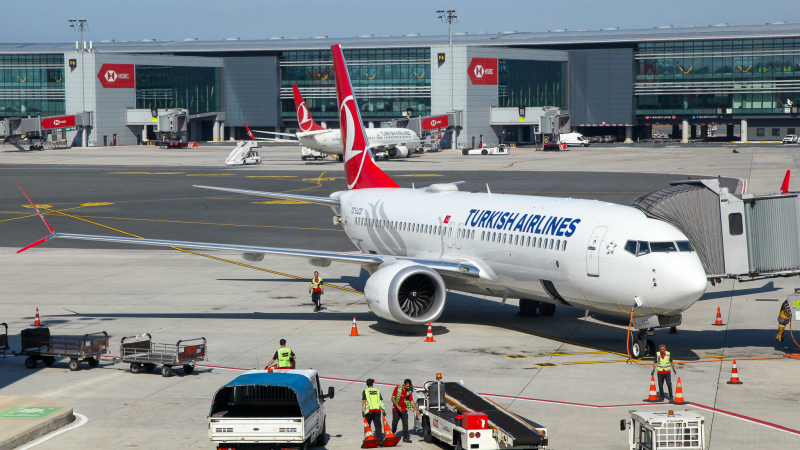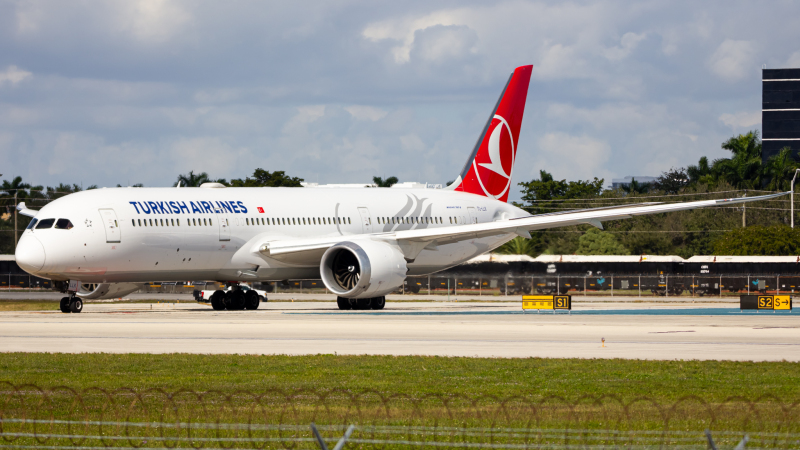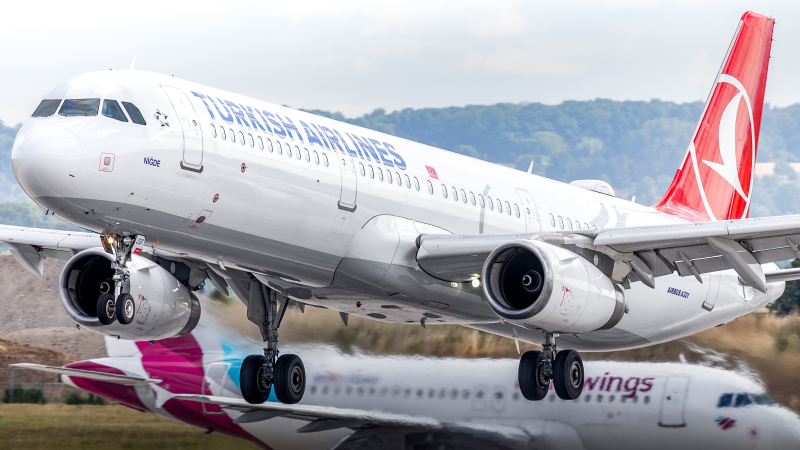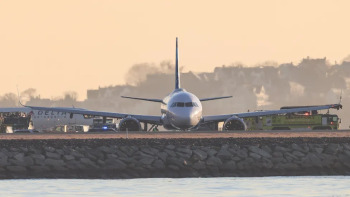Numerous passengers have reported bedbugs falling from the ceiling and crawling on the seats on recent Turkish Airlines flights. Despite being made aware of the issue, customers say the airline is not taking the complaints of unwanted bugs seriously.

Multiple Instances of Unwanted Travel Companions
According to 28-year-old Matthew Myers, who was traveling with his girlfriend on one of Turkish Airlines' two daily flights from Istanbul (IST) to San Francisco (SFO) in October 2024, the passenger next to him noticed bedbugs crawling on the seats and falling from the ceiling.
Myers said he saw the bugs fall directly into his neighbor’s lap and, in an interview with the New York Times, said: “Multiple passengers were asking to move seats after discovering bugs.” Myers later recounted that at least one passenger had moved to a flight attendant jump seat as bugs continued to fall from the cabin ceiling. He also said a flight attendant had told passengers a complaint was filed during the flight.
As an apology, Turkish Airlines reportedly offered Myers a 10% discount on all future travel, valid for the two months following the incident. It is unknown whether other passengers on the same flight were offered discounts as well, but another Turkish passenger who also experienced bedbugs reportedly received the same compensation offer. The airline also stated that their aircraft undergo “deep cleaning every 21 days, and general cleaning before every flight.”

On a separate October flight from Washington Dulles (IAD) to Istanbul about three weeks later, science teacher Kristin Bourgeois noticed bugs hidden within the provided blanket. After noticing another bug on her pillow, she realized the bugs were bedbugs. After reaching Istanbul roughly 10 hours later, Bourgeois found 13 bite marks on her torso.
When she reached out to Turkish Airlines to file a complaint, the airline demanded a doctor's medical report before it would investigate the incident. In addition, Bourgeois said that Turkish deleted her flight history from the airline app and offered 5,000 miles as compensation.
Patience Titcombe also reported spotting bedbugs on her seat during a Turkish Airlines flight from Johannesburg (JNB) to Istanbul in March 2024. In a post on social media platform X (formerly known as Twitter), Titcombe shared a photo of the dark-brown bug crawling on her seat. She commented, “@TurkishAirlines bedbugs on our inbound flight to IST is every traveler's nightmare!!!”
Titcombe quickly alerted a flight attendant about the bedbug, which was soon disposed of. However, when she went to confront the flight attendant about the bedbugs on her seat, the attendant reportedly dismissed her concern.

After her flight, Titcombe said she complained to Turkish directly with photographic evidence but was met with numerous denials. She reported that Turkish said “no record of any disruption” existed and that their aircraft are “disinfected regularly”. “I had to strip down at the airport and change clothes because I have kids — what if I brought bedbugs home?” she told the New York Times.
After at least four reported instances of bedbugs in recent months, some passengers are expressing their dissent towards Turkish Airlines. On an aviation forum, one commenter wrote “This is terrifying. It will certainly put me off flying with them.”
How Can I Protect Myself from Bedbugs?
While the recent incidents on Turkish Airlines are alarming, bedbugs can be found on any airline's aircraft. While the risk of encountering bedbugs is still relatively low, it is important to know how you can protect yourself against any unwanted bugs.
According to the United States Environmental Protection Agency (EPA), bedbugs (or Cimex lectularius) feed on human blood, causing itchy bites and red splotches. While bedbugs are considered a public health pest, they do not transmit or spread diseases.
When traveling, one of the best ways to prevent bedbugs from hitching a ride on the airplane is to use a light-colored, hard-shell suitcase. This will allow you to easily spot any bugs on your luggage and wipe down the exterior of your suitcase with a sanitizing wipe.
In addition, experts say to never put your suitcase on the bed. Instead, they recommend placing your luggage on a luggage rack, table, or hard, tiled surface. This is because bedbugs tend to hide in nooks and crannies of couches, beds, and rugs.
Although bedbug incidents on airplanes are generally uncommon, the recent Turkish Airlines incidents remind travelers to stay aware and take steps to protect themselves against these unwanted travel companions.
Export Development Canada Secures Aircraft Repossession in Nigeria Under Cape Town Convention » Thousands of Flights Impacted as Winter Storm Blair Hits U.S. » Could You Survive a Plane Crash? The Unlikely Science of Plane Crash Survival »
Comments (3)
 dave wilson
Bed bugs can be a problem to control and as smeone who had over 50 years as a Pest Exterminator I have had a lot to do with them. A normal clean or deep clean will not work .There are a number of good insecticides available and steam tratments are also effective.but you have to call in the Exterminators. The passengers on the plane should have caught a few bed bugs and dropped them in the cockpit as they were disembarking.That would have stirred up the airline into fixing the problem.
dave wilson
Bed bugs can be a problem to control and as smeone who had over 50 years as a Pest Exterminator I have had a lot to do with them. A normal clean or deep clean will not work .There are a number of good insecticides available and steam tratments are also effective.but you have to call in the Exterminators. The passengers on the plane should have caught a few bed bugs and dropped them in the cockpit as they were disembarking.That would have stirred up the airline into fixing the problem.
 LondonScot
Cleaned every flight and property cleaned every 21 days, my ass.
This airline needs to up its game seriously, and not be shoddy on supplying passenger cleanliness.
Bedbugs are NOT a acceptable norm in the industry, this airline has too many instances, proving shoddy cleanliness.
LondonScot
Cleaned every flight and property cleaned every 21 days, my ass.
This airline needs to up its game seriously, and not be shoddy on supplying passenger cleanliness.
Bedbugs are NOT a acceptable norm in the industry, this airline has too many instances, proving shoddy cleanliness.
 Arif Mohsin
Worst airline in the world. Stealing my $ 2200 iPad with $ 800 worth of other merchandise , flight from Houston to Istanbul in 2020. Always tell my friends and family not to fly Turkish. They are crooks and thieves.
Arif Mohsin
Worst airline in the world. Stealing my $ 2200 iPad with $ 800 worth of other merchandise , flight from Houston to Istanbul in 2020. Always tell my friends and family not to fly Turkish. They are crooks and thieves.
Add Your Comment
SHARE
TAGS
NEWS Turkish Turkish Airlines Bedbugs Bedbug Infestation Flights IstanbulRECENTLY PUBLISHED
 Could You Survive a Plane Crash? The Unlikely Science of Plane Crash Survival
With air travel consistently being heralded as the safest form of public transport, most of us do not board a plane pondering our chances of survival in the event of a crash. But, is it possible to survive one?
INFORMATIONAL
READ MORE »
Could You Survive a Plane Crash? The Unlikely Science of Plane Crash Survival
With air travel consistently being heralded as the safest form of public transport, most of us do not board a plane pondering our chances of survival in the event of a crash. But, is it possible to survive one?
INFORMATIONAL
READ MORE »
 Maldivian Airlines Introduces First-Ever Widebody Aircraft, Plans New China Flights
Maldivian, the government-owned national airline of the Maldives, has just welcomed its first-ever wide body aircraft: the Airbus A330-200. With the new aircraft, the carrier also plans brand-new long haul international flights to China.
NEWS
READ MORE »
Maldivian Airlines Introduces First-Ever Widebody Aircraft, Plans New China Flights
Maldivian, the government-owned national airline of the Maldives, has just welcomed its first-ever wide body aircraft: the Airbus A330-200. With the new aircraft, the carrier also plans brand-new long haul international flights to China.
NEWS
READ MORE »
 Thousands of Flights Impacted as Winter Storm Blair Hits U.S.
Winter Storm Blair has unleashed a huge blast of snow, ice, and freezing temperatures across the Central and Eastern United States.
As of Sunday afternoon, over 6,700 flights and counting have been disrupted. This includes cancelations and significant delays leaving passengers scrambling to change flights and adjust travel plans.
NEWS
READ MORE »
Thousands of Flights Impacted as Winter Storm Blair Hits U.S.
Winter Storm Blair has unleashed a huge blast of snow, ice, and freezing temperatures across the Central and Eastern United States.
As of Sunday afternoon, over 6,700 flights and counting have been disrupted. This includes cancelations and significant delays leaving passengers scrambling to change flights and adjust travel plans.
NEWS
READ MORE »




